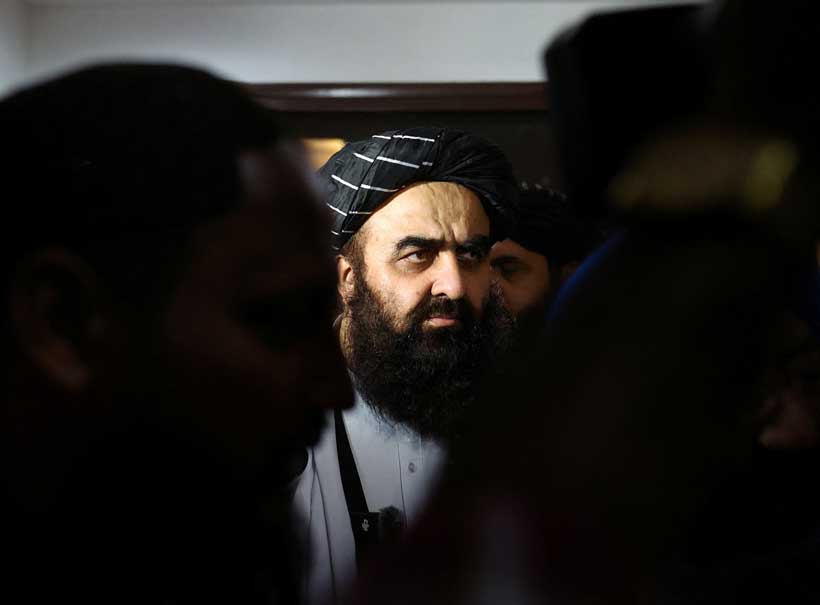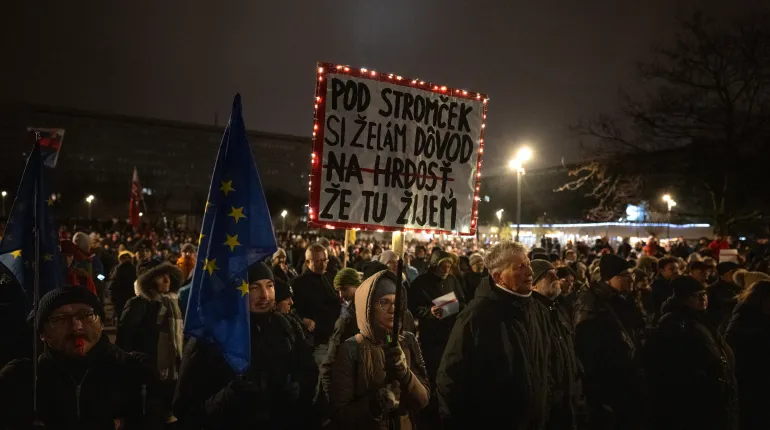USAF Buying Lufthansa 747s To Serve As Future Air Force One Trainers, Spare Parts Sources
The U.S. Air Force has confirmed it is buying two Boeing 747-8 airliners from German flag carrier Lufthansa. The jets will be used for training and as sources of spare parts as part of a larger effort to try to accelerate the entry into service of two new VC-25B Air Force One aircraft. This follows the service’s recent announcement that it now hopes to have the first VC-25B in hand by mid-2028, a slight improvement in the still much-delayed delivery timeline for the aircraft.
“As part of the presidential airlift acceleration efforts, the Air Force is procuring two aircraft to support training and spares for the 747-8 fleet,” Ann Stefanek, an Air Force spokesperson, told TWZ in a statement. “Given [that] the 747-8i is no longer in active production, and is a very different aircraft than the 747-200, it is important for the Air Force to establish an overall training and sustainment strategy for the future Air Force 747-8i fleet.”

The Air Force’s two existing VC-25A Air Force One jets are based on the 747-200, a type that has become increasingly difficult to operate and maintain in recent years. The last 200-series model rolled off Boeing’s production line in 1991. This version is also the basis for the service’s four E-4B Nightwatch ‘doomsday plane’ flying command posts, which are in the process of being separately replaced with E-4C Survivable Airborne Operations Center (SAOC) jets converted from newer 747-8s.
Furthermore, Boeing shuttered the 747 line entirely in 2022. Lufthansa, Korean Air, and Air China are the only airlines that still use 747s of any kind for scheduled passenger flights. A number of other commercial operators continue to fly freighter versions, and a number of specially configured 747s also remain in VIP fleets globally.
“The Air Force is procuring the two aircraft for a total of $400M. We expect the first aircraft to arrive early next year. The second is expected to be delivered before the end of the year,” Stefanek, the Air Force spokesperson, added, though the reasons for the reverse order in delivery of the jets are not clear. She further clarified that one of the aircraft will fly and be used for training purposes, at least initially. The other aircraft will be utilized as a source of spare parts from the start. Air Force One pilot and flight engineer training has previously been contracted out.
Unconfirmed reports that Lufthansa was selling two 747-8s to the Air Force first emerged last week. The aircraft in question reportedly have the registrations D-ABYD and D-ABYG, which have been flying for the German airline since August 2021 and March 2013, respectively. There had been no prior indications that Lufthansa was looking to divest any part of its 747 fleet, and it is unclear how long this deal has been in the works.
“To be clear, Boeing continues to modify two 747-8i aircraft for the VC-25B program, the first of which is expected to deliver in mid-2028,” Stefanek stressed. “The two aircraft mentioned above are additional aircraft to be used for training and spares.”
As mentioned, the VC-25B program has repeatedly faced delays due to technical and other issues. Earlier this year, the White House confirmed the first of these aircraft was not expected to arrive until sometime in 2029 at the earliest, representing a new schedule slip. The Air Force had originally hoped to take delivery of the first jet in December 2024.
Pushing the timeline to the left to 2028 would notably give President Donald Trump a better chance of flying in one of the VC-25Bs before the end of his second term. Trump has been particularly outspoken and active in regards to the program since before his first term. In December 2016, as president-elect, he had publicly called for the purchase of the two new Air Force One jets to be cancelled. Trump subsequently became a supporter of the program after claiming to have single-handedly been responsible for slashing the cost of the aircraft, though this remains debatable.
He has, however, continued to be critical of the progress, or lack thereof, on the new VC-25Bs. This is said to have contributed to the acquisition of a highly-modified ex-Qatari VVIP 747-8i aircraft earlier this year, ostensibly as a gift from that country to the United States. The process of converting that jet into an ‘interim’ Air Force One, reportedly helmed by L3Harris, began in September. The Air Force has said previously that it expects the conversion to cost less than $400 million. TWZ has previously questioned the feasibility of this plan in detail, given the strenuous operational and other requirements the jet will have to meet to truly serve in the Air Force One role.

With the ex-Qatari jet and the two 747s from Lufthansa, the plans around the future VC-25B fleet have ballooned from two aircraft to five, four of which will be flyable. This also reflects a broader trend under the Trump administration to expand U.S. government executive aircraft operations.
Separate from the VC-25B program, the Air Force’s acquisition of the two 747-8s from Lufthansa highlights broader potential challenges for operating any aircraft based on this design, also including the E-4Cs, as time goes on. It is worth noting here that with no new 747s in production, at least the initial tranche of E-4Cs are being converted from ex-Korean Air jets. Many more 747-200-series jets were made than -8 versions, as well.

Ensuring there is a sufficient logistical base to support the VC-25B and E-4C fleets will be critical going forward, and the secondary market looks set to continue playing an important role.
Contact the author: joe@twz.com




